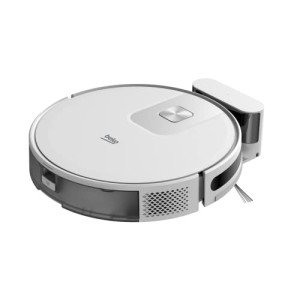Understanding Robot Vacuum Cleaner Prices: A Comprehensive Guide
Over the last few years, robot vacuum cleaners have changed the way people clean their homes. Their ease of usage, convenience, and advanced technology have actually made them significantly popular. Nevertheless, with a huge selection of designs and features readily available, potential buyers frequently find themselves asking a sixty-four-thousand-dollar question: What should I anticipate to spend for a robot vacuum cleaner? This article aims to clarify the costs connected with robot vacuum cleaners, aspects that influence their costs, and tips for finding the best gadget for your budget.
The Price Range of Robot Vacuum Cleaners
Robot vacuum can differ widely in price. Here, we break down the typical price range for various classifications:
| Category | Price Range | Description |
|---|---|---|
| Entry-Level | ₤ 100 - ₤ 250 | Fundamental features, appropriate for small spaces, very little smart technology. |
| Mid-Range | ₤ 250 - ₤ 500 | Enhanced cleaning abilities, better navigation, some smart features. |
| High-End | ₤ 500 - ₤ 1,000+ | Advanced mapping, powerful suction, internet connectivity, and app combination. |
Entry-Level Models
Affordable robot vacuums are perfect for those who require a standard cleaning tool without high-end features. They frequently deal with tough floorings well but might battle with carpets and are typically less resilient.
Mid-Range Models
These vacuums frequently come geared up with better suction power and more intelligent navigation systems, making them appropriate for bigger homes with mixed floor covering. Numerous models in this variety offer Wi-Fi connection and smart device control.
High-End Models
High-end robot vacuums are created for serious cleaning lovers. They typically provide sophisticated mapping technology, effective suction, and built-in video cameras for boosted navigation. Additionally, Automatic Vacuum Cleaner -end models permit vacuuming on a schedule and even have the ability to empty their dust bins instantly.
Aspects Affecting Robot Vacuum Prices
Comprehending the aspects that can affect the price of a robot vacuum can help consumers make more educated purchasing choices. The following list describes some crucial functions that can affect price:
- Brand Reputation: Established brands generally bring a greater price tag due to their reputation and reliable consumer support.
Cleaning Technology:
- Suction Power: More effective models will be more costly.
- Navigation Systems: Advanced models with much better obstacle detection and mapping abilities cost more.
- Smart Features: Models that offer connection to apps, voice control compatibility, and advanced scheduling choices tend to be priced higher.
- Battery Life: Longer-lasting batteries generally result in a greater price, as they allow the vacuum to tidy larger locations without needing to charge.
- Dustbin Size: Larger dustbins can be easier for customers, promoting a greater price point.
- Additional Features: Some vacuums use mopping abilities, self-cleaning functions, and high-efficiency filters, which can increase their price.
Budget vs. Features: What to Consider
When purchasing a robot vacuum, it's vital to weigh your budget versus the features you most desire. Here are numerous factors to consider to help you make an informed decision:
1. Evaluate Your Home's Needs
- Size of Space: Larger homes may gain from more sophisticated vacuums that can cover more ground without regular recharging.
- Floor Types: If your home contains a mix of carpet and tough floorings, choose for a vacuum designed for both.
2. Determine Desired Features
- Decide which features are important for you, such as scheduling, app connection, and cleaning modes.
3. Price vs. Durability
- While a higher financial investment can yield longer-lasting designs, it's worth thinking about lower-cost options if you're unsure about long-lasting usage.
Often Asked Questions (FAQs)
Q1: Are robot vacuums worth the investment?
A1: If you lead a hectic lifestyle or have movement issues, a robot vacuum can save substantial effort and time in cleaning, making them a beneficial financial investment.
Q2: How frequently should I replace a robot vacuum?
A2: Depending on the design and use, a robot vacuum generally lasts between 3 to 5 years. High-end models may last longer with appropriate upkeep.
Q3: Can a robot vacuum totally replace a conventional vacuum?
A3: While robot vacuums efficiently manage daily cleaning, they may not replace standard vacuums for deep cleaning, particularly in multi-level homes or areas requiring comprehensive care.
Q4: What is the average life expectancy of a robot vacuum?
A4: The life expectancy of robot vacuums varies by model, however many last in between 3-5 years with regular maintenance, like dustbin emptying and filter changes.
Q5: Do robot vacuums work on carpets?
A5: Yes, but the efficiency will depend upon the design. Higher-priced designs normally have better suction power to clean carpets effectively.
The marketplace for robot vacuum is diverse, with models to fit different spending plans and cleaning needs. Whether consumers are searching for a basic cleaning tool or an innovative gadget geared up with numerous smart functions, understanding the price varieties and factors impacting costs is essential. With mindful consideration of specific needs and financial constraints, prospective purchasers can discover a robot vacuum that will enhance their cleaning routine and provide long-lasting fulfillment.

